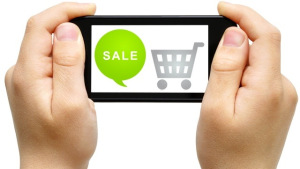Over the weekend we saw how much mobile impacted holiday shopping over the Thanksgiving weekend in the U.S. Today, Deloitte is publishing figures that show this is more than a U.S. trend. In the UK, £3.5 billion ($5.6 billion) of holiday sales will “influenced” by smartphones. That figure so far outstrips actual mobile commerce — that is, purchases made by mobile devices. Deloitte predicts that £330 million ($529 million) of sales will be made directly through smartphones, and a further £500 million ($801 million) through tablets — that works out to potentially tripling the value of sales on mobile devices made a year ago.
As a point of comparison, the UK is even more influenced by smartphones than consumers across the pond. In the U.S., Deloitte predicts that smartphones will influence 5.1% of total holiday retail store sales, compared to 10% in the UK. Still the U.S. figures are considerably higher. That 5.1% works out to $36 billion of sales, or nearly 7 times more than in the UK.
Deloitte’s not the only one to chart online activity. Over the last few days, comScore noted that Black Friday e-commerce sales in the U.S. topped $1 billion for the first time ever this year; that same day, top e-commerce platforms PayPal and eBay saw mobile transactions up by 193% and 153% respectively. On Thanksgiving, IBM noted that e-commerce in the U.S. was up nearly 18% on last year, with mobile up 28.5%, with 15.4% of consumers buying things on mobile devices. ComScore overall believes that e-commerce will ring in $42 billion of sales this holiday season in the U.S. alone.
Back in the UK, Deloitte’s prediction that tablets will overtake smartphones for mobile commerce makes sense. For now, mobile payment services at the point of sale still are not mainstream, and when it comes to browsing and other parts of user experience, tablets tend to be significantly more consumer-friendly.
But smartphones will continue to be the more influential device, Deloitte says. “The influence of smartphones far outweighs the value of direct sales made through them,” Deloitte writes, “with consumers using their device to research prices, store Christmas shopping lists, engage with friends and family using social media.” It predicts that by 2016 mobile will influence 18% of sales annually, working out to £43bn ($69 billion).
Mobile, and e-commerce in general, look like they are also offsetting declines in more traditional channels, which has been affected by consumer confidence and inflation. Deloitte predicts not only that smartphones will give in-store sales a lift of 10% in December, but that online sales will go up by 17%, in contrast to total Christmas retail sales increasing by just 1% this year.
Deloitte believes that within that figure, general merchandise sales may be flat or even slightly down, as consumers shift their smaller budgets to food to “save the Christmas dinner,” in the words of Ian Geddes, UK head of retail at Deloitte. The bright spots, he says, will be with those retailers that combine good products, strong brands, customer service and the right mix of online, mobile and offline offerings.
In a U.S. consumer survey, Deloitte found that consumers using smartphones tended to be power buyers in general. It found that smartphone owners spent 72% more on holiday shopping than others, with 68% of those smartphone users planning to use their devices to shop.
Part of this could be because smartphones have so many apps and mobile websites catering to the shopping experience, but affluence may play a role, too: smartphone use is ballooning, but it’s still more likely that those who can afford fancy devices and expensive monthly mobile plans are also the same people who have bigger budgets for gifts and other holiday paraphernalia.
